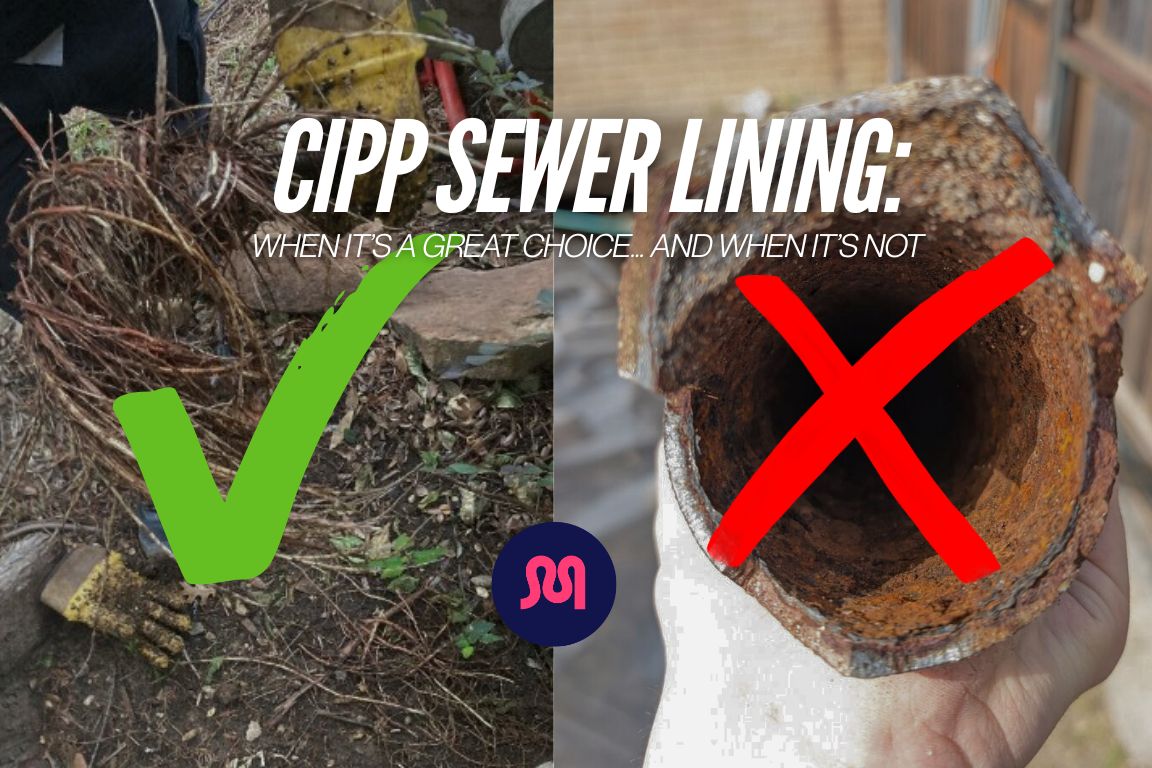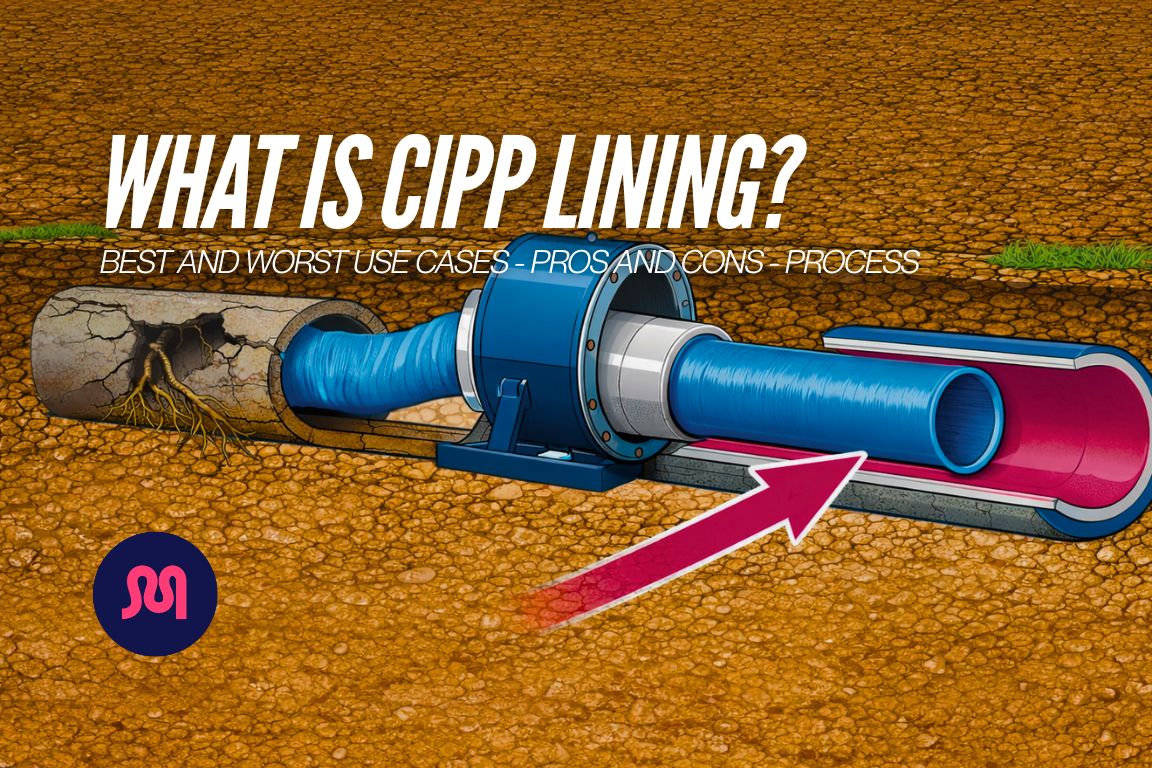Fast Plumbing Answers: Do Cast Iron Pipes Have Lead?

table of contents
table of contents
Perhaps you’ve heard about the danger of cast iron pipes in older homes. If so, you know these pipes often leach lead into your water — and you’re worried about the safety and well-being of your family. You need answers: do cast iron pipes have lead in them? And is your family at risk?
Don't worry — we'll answer all your questions in 2 minutes or less.
We’re Mother, a Dallas-Fort Worth plumbing company that provides dependable, hassle-free modern plumbing for homeowners who value quality. Call us for fast, expert repair or removal of cast iron pipes in your home sewer system.
{{sewer-line-repair-and-replacement="/services/sewer-line-repair-and-replacement"}}
The Fast Answer: Do Cast Iron Pipes Contain Lead?
While cast iron itself is primarily made of iron, yes, cast iron pipe systems can have lead components. The main cast iron drain and vent lines do not contain lead. However, lead is often present in the smaller riser pipes that connect toilets to the main drain line.

Lead exists in plumbing connections in older homes
The majority of cast iron pipe systems are lead-free. However, certain connections — specifically at toilets in older homes — frequently contain lead.
Dillon Ashton is one of Mother Modern Plumbing’s experienced plumbers. We spoke to him for more information about the relationship between cast iron pipes and lead contamination.
“A lot of riser pipes in older toilets contain lead,” Dillon explains. “So yes, there is some lead in the pipe itself, but not on the main sewer system."
Cross-connections cause lead contamination in your drinking water
Cast iron pipes are prevalent in sewer lines — your wastewater pipes, drains and sewer system leading away from your home. So how does the lead in these pipes get back into your home’s potable water?
As Dillon explains, "Your water system and your sewer system are two different systems. But in some older homes, you get what’s called cross-connection.”
Cross-connections occur when water and sewer lines meet underground. This occurs in older plumbing systems — as pipes deteriorate, leak or crack, their water supplies meet and “cross-connect” underground.
“When your water and sewer lines connect, that could be deadly,” Dillon continues. “There is a chance you get lead from your sewer water in your drinking water.”
You can’t boil lead out of water! Learn the truth behind this and other common misconceptions about lead in your drinking water.
{{does-boiling-water-remove-lead="/blogs/does-boiling-water-remove-lead"}}
Plumbing and Health Effects of Lead in Cast Iron Pipes
Let’s look at the specific plumbing damage and health effects caused when cast iron pipes are exposed to lead.
Plumbing damage caused by lead in cast iron pipes
Lead components in or around cast iron sewer pipes accelerate plumbing damage in 2 key ways.
- Corrosion: Cast iron pipes rust and corrode over time. This issue is magnified with the presence of lead — corrosion occurs faster, and lead leaches into your soil.
- Blockages: The buildup of debris within any part of a cast iron sewer line contributes to blockages and backups in your drainage.
Health effects of lead accumulation in cast iron pipes
The presence of lead in cast iron systems might seem contained to your drainage and sewer lines. But contamination through cross-connections poses serious health risks:
- Risk from Cross-Connections: A cross-connection between sewer lines containing lead components and potable water lines introduces lead directly into your drinking water. Homes with older plumbing infrastructure are at greater risk, especially galvanized pipes.
- Lead Poisoning: Even small amounts of lead exposure create serious health problems, especially in young children and pregnant women. These include developmental issues, learning disabilities, nervous system damage, and kidney problems.
3 Warning Signs of Lead in Cast Iron Pipes
You can’t directly observe lead in cast iron drain pipes or sewer pipes without a plumbing inspection. If you live in DFW, call us for a non-invasive sewer camera inspection.
However, certain signs might indicate older plumbing systems where lead components could be present:
- Older Homes: Homes built before the mid-1980s are more likely to have plumbing systems that include lead materials.
- Gray Metal Pipes Near Toilets: If you notice gray metal pipes connected to toilet risers, these could be lead.
- Underground Cast Iron Pipe Leaks: If your underground sewer line is made of cast iron, call a plumber immediately if you suspect a leak, break or corrosion. Our plumbing experts conduct thorough inspections to ensure there’s no cross-connection between your sewer line and potable water supply.
Ask for These 4 Key Lead Pipe Removal Services

Expertise is required when locating lead in older pipe systems. A trusted, local plumbing service has access to advanced testing systems and code-based lead testing solutions that most homeowners don’t possess.
Ask your professional plumber to provide these 4 key services during your service call:
- Expert Identification: Our plumbers have the expertise to identify the materials used in your plumbing system. This includes any lead components in toilet risers or potential cross-connections between water and sewer lines.
- Proper Inspection: A licensed plumber conducts a thorough inspection of your plumbing to identify any areas of concern, and ensure your water and sewer systems are correctly separated.
- Safe Remediation: If lead contamination or cross-connections are found, a plumber safely and correctly remediates the issue, ensuring no further contamination occurs.
- Code Compliance: Plumbing work must adhere to local codes and regulations. Mother’s professional plumbers ensure that any repairs or replacements meet these standards.
DFW Homeowners: Call Mother for Sewer Line Inspection and Repair
The presence of lead in older Dallas-Fort Worth toilet risers and the potential for dangerous cross-connections require careful inspection and removal.
Don't risk the health of your family or the integrity of your plumbing by attempting to assess or fix these issues yourself.
Call Mother Modern Plumbing immediately. Our experienced plumbers provide a thorough inspection and ensure your plumbing is safe and up to code. We’ll quickly and safely remove any lead-based plumbing materials from your home and restore your peace of mind.
{{sewer-line-repair-and-replacement="/services/sewer-line-repair-and-replacement"}}




